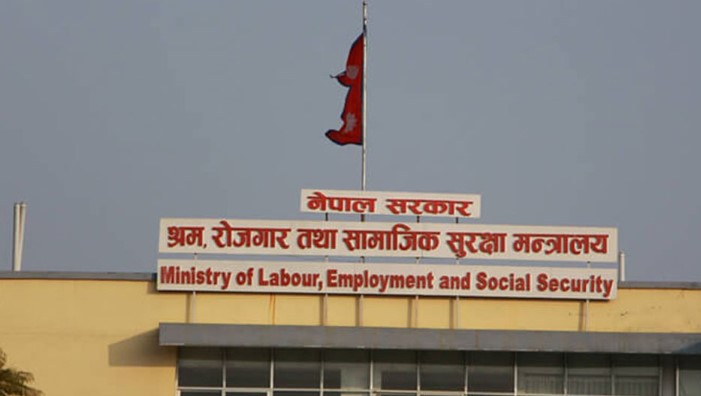Government Plans to Scrap Mandatory Term Life Insurance for Migrant Workers

Kathmandu — The government is moving to eliminate the mandatory term life insurance provision currently required for Nepali workers seeking foreign employment, signaling a major policy shift in the country’s labor migration framework.
A new bill prepared by the Ministry of Labor, Employment and Social Security to amend the Foreign Employment Act, 2064 proposes to scrap the compulsory life insurance provision, which obliges workers to purchase temporary insurance policies every two years to obtain or renew work permits. The ministry is preparing to forward the draft to the Ministry of Law for further processing.
If passed, the amendment would end a long-standing requirement that has drawn criticism from migrant worker groups and labor rights organizations. Currently, workers pay between Rs 3,500 to Rs 5,500 based on age for term life insurance, in addition to Rs 1,500 to Rs 2,500 for the workers’ welfare fund and Rs 2,000 per month for the Social Security Fund.
Speaking on the proposed changes, Labor Minister Sharat Singh Bhandari emphasized the government’s intent to adopt a “single-door” system that consolidates insurance and welfare contributions into one streamlined fund. “Workers going abroad are paying separately for welfare and insurance. We are planning to integrate these payments so that the full amount can be used for their benefit,” said Bhandari.
He added that strengthening the Workers’ Welfare Fund would offer broader and more efficient support, including higher relief payouts, scholarships for the children of deceased workers, repatriation of bodies, and medical treatment for injured migrants and their families.
Under the current system, if a worker dies during the contract period, life insurance provides a relief amount of Rs 1.4 million — despite a premium payment of only Rs 3,900. In comparison, the welfare fund, with a Rs 1,500 contribution, offers Rs 1 million in compensation along with various additional benefits.
Recent data from the Foreign Employment Board underscores the urgency of reform. In the last fiscal year alone, the board compensated the families of 1,100 deceased workers, repatriated 1,180 bodies, and provided medical support to 698 injured or disabled workers. Additionally, the board independently repatriated 70 bodies that were stranded abroad.
The Non-Resident Nepali Association (NRNA) and labor unions have long called for the removal of the mandatory insurance, especially the provision that requires workers to pay for an extra six months of insurance coverage each time they renew their two-year contract.
Critics argue that private insurance companies have profited significantly while offering limited benefits. According to the Nepal Insurance Authority, in FY 2080/81, private insurers collected Rs 3.12 billion in premiums from 744,130 migrant workers but paid out only Rs 1.42 billion in claims to 1,601 beneficiaries.
